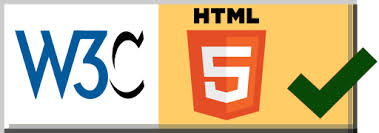Prescription Drug Abuse on the Rise
Earlier this year, the federal government announced a $4.3 million dollar plan to monitor the scope of prescription drug abuse in Canada. Reports show that Canada has the second highest rate of prescription opioid consumption in the world and estimates suggest more than 1,000 Canadians die each year after taking the drugs.
This high rate of abuse creates a demand that often gets filled by those who illegally traffic in prescription medication. While these medications confer many benefits when used properly by the person to which they are prescribed, in the wrong hands they can be just as dangerous and deadly as street drugs. As a result, Canadian law imposes strict penalties on individuals who illegally use or traffic in prescription drugs.
These laws are put in place to deter individuals from misusing prescription medication as well as to stop people from using the ingredients they contain to manufacture and sell additional controlled substances. Under the Controlled Drugs and Substances Act, which deals with both prescription drugs as well as “street” drugs, you can be charged with either unlawful possession of a prescription drug or illegally trafficking in prescription medication. In many cases, individuals are charged with both.
Commonly Abused Drugs
As prescription drug abuse has become more common, so too have the medications involved. Health care personnel and police officers generally classify these drugs into three groups: opioids, stimulants, and depressants.
Opioids block pain by preventing the brain from receiving pain signals from the rest of the body. Because they interfere with the body’s ability to feel discomfort, they are a prime target for misuse. In most cases, they are also highly habit forming. Common opioids include codeine, Vicodin, Percocet, and oxycontin.
As their name suggests, stimulants cause the individual to feel more alert and aware. Popular stimulants, particularly among adolescents, include Adderall and Ritalin.
Finally, depressants help individuals who suffer from insomnia, anxiety, and a host of other ailments. Depressants include Ambien, valium, and Xanax.
Prescription Drug Offences and Consequences
In addition to these medical classifications, the Controlled Drugs and Substances Act categorizes regulated substances into five “schedules,” with most widely abused prescription drugs found in Schedules 4 and 5. These drugs are legal to possess with a valid prescription, but if the drug has not been specifically prescribed by a doctor to the person who possesses it, and is not sold over the counter in a pharmacy, it is likely illegal to possess. Additionally, these drugs are illegal to import or export, or to traffic or possess with the intent of trafficking.
The penalties for illicit possession or distribution of prescription medication depend on a number of factors such as the type and quantity of the drug, and the Crown may elect to proceed either by indictment or summary conviction. Consequences can range from fines to significant jail time, especially for trafficking offences.
Though prescription medication may not conjure up the images of “drugs” that cocaine or heroin does, their illicit use and distribution is just as illegal and can result in just as real and serious consequences. Such charges should not be treated lightly; consulting with a criminal defence lawyer experienced with prescription drug offences is of vital importance for those facing such charges.
Ottawa Criminal Defence Firm Engel & Associates Defends Against Even The Most Complicated Charges
Criminal lawyer Bruce Engel has represented individuals and businesses charged with hundreds of different offences throughout Canada for more than two decades. From the start of a criminal investigation to the close of a trial, we will take a balanced and forceful approach to your defence. We have the experience and know-how to effectively navigate the constantly changing justice system in Canada.
The materials provided on this site are for information purposes only. These materials constitute general information relating to areas of law familiar to our firm lawyers. They do NOT constitute legal advice or other professional advice and you may not rely on the contents of this website as such.


